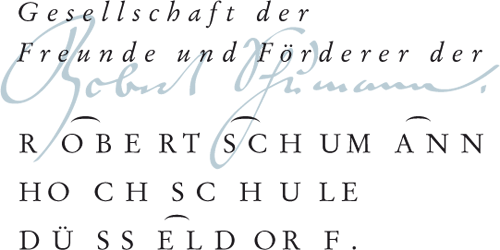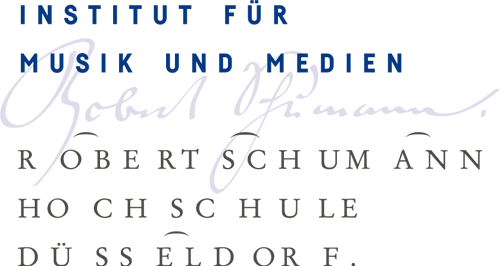Dr. Angela Ida De Benedictis (Paul Sacher Stiftung Basel)
Give me what you remember: Zur Kollaboration Luciano Berio – Cathy Berberian zwischen Stimme, Körper und Gedächtnis
Ort: Robert Schumann Hochschule, Gebäude e, Raum 1.17/18 (Georg-Glock-Straße 19, 40474 Düsseldorf)
Zum Vortrag
Über die künstlerische und menschliche Beziehung zwischen Luciano Berio und Cathy Berberian ist bereits viel geschrieben worden. Betont wurde dabei insbesondere die enge Verbindung (von vielen als „Mitautorschaft“ gedeutet), die zur Entstehung von Meisterwerken wie Thema (Omaggio a Joyce) (1958), Visage (1961) oder Sequenza III (1965) führte. Im Rahmen des Vortrags wird das kreative Verhältnis zwischen Berio und Berberian diskutiert und anhand unveröffentlichter Dokumente aus ihren Nachlässen interpretiert, die in der Paul Sacher Stiftung in Basel aufbewahrt werden. Die Analyse dieses Archivmaterials eröffnet neue interpretative Perspektiven, die es ermöglichen, von einem vokalen und physischen „Gedächtnis“ zu sprechen – einem Gedächtnis, das Interpretin und Komponist in einer künstlerischen und kollaborativen Verbindung vereint, die es in vielerlei Hinsicht noch zu entdecken gilt.
Zur Referentin
Dr. Angela Ida De Benedictis ist wissenschaftliche Mitarbeiterin der Paul Sacher Stiftung in Basel und dort als Kuratorin für mehr als 25 Sammlungen von Komponist*innen verantwortlich, darunter Cathy Berberian, Luciano Berio, Pierre Boulez, Helmut Lachenmann, Bruno Maderna und Henry Pousseur. Sie promovierte 2002 an der Universität Pavia über die Musik für Hörspiel und Radiokunst und war 2005–2007 Stipendiatin der Alexander von Humboldt-Stiftung in Berlin. Sie lehrte an den Universitäten von Padua, Salerno, Parma, Bern, Pavia (Cremona) und Fribourg. Sie ist Direktorin des Centro Studi Luciano Berio und wissenschaftliches Mitglied der Fondazione Archivio Luigi Nono. Ihre bisherigen Forschungen, die sich in zahlreichen Publikationen niedergeschlagen haben, umfassen die musikalische Avantgarde des XX.–XXI. Jahrhunderts mit besonderen Schwerpunkten auf dem Schaffen italienischer Komponisten, Musik und Technologie und elektroakustischer Musik. Zu ihren Publikationen zählen die Gesamtausgabe der Schriften von Luigi Nono, Luciano Berio und Bruno Maderna (2001, 2007, 2013, und 2020), Radiodramma e arte radiofonica (2004), Luciano Berio. New Perspectives (2012), Utopia, Innovation, Tradition: Bruno Maderna’s Cosmos (2022) sowie kritische Ausgaben von Berio, Boulez, Nono, Maderna u.a.




